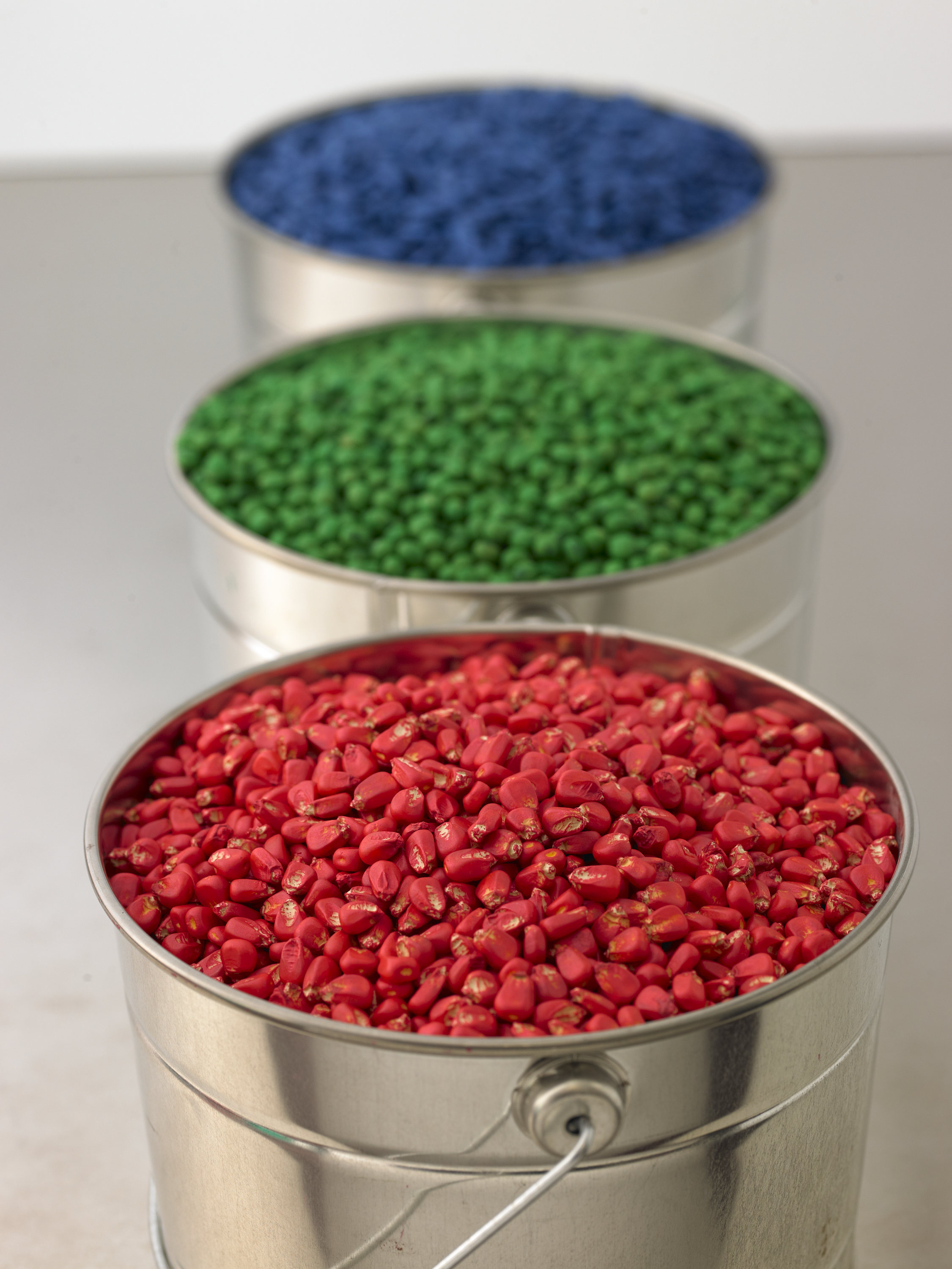United Kingdom
August 23, 2024
Seed is a farmer’s most important and highest-value input. Farmers therefore use many other inputs to help protect that seed, so it can realise its full potential. Seed treatments protect seed during vulnerable early stages of development. They often encompass many crop health functions, all in a seed treatment, helping farmers care for their crops more efficiently and leave a smaller footprint in the environment.
Seed treatments can address many challenges at once
Seed treatments are often finely tuned recipes of multiple ingredients, providing different types of benefits in a single coating.
Fungicide seed treatments protect the seed against diseases. Seeds are especially vulnerable to fungal disease when they are planted in cool, wet soils in the autumn and even spring. Some of these fungicides are biological products, made from naturally occurring bacteria.
Insecticide seed treatments prevent damaging pests from feeding on seeds, developing seedlings and roots. Since only the seed itself is treated, these kinds of seed treatments reduce exposure to non-target organisms and beneficial insects such as pollinators.
Seed-applied endophytes are made up of naturally occurring nitrogen-fixing bacteria. The bacteria help keep soil healthy and increase availability of nutrients to young plants.
Microplastic free polymers are also part of the seed treatment recipe. Seed treatments often include multiple ingredients—such as fungicide, insecticide, and biologicals —allowing a single coating to perform multiple tasks.

Seed treatments often include multiple ingredients—such as fungicide, insecticide, nematicide and inoculant—allowing a single coating to perform multiple tasks.
Seed treatments are customisable
Seed treatments can be tailored to meet specific farm challenges. A farmer with very little pest pressure might decide to forego insecticide on their seed, but still needs protection against disease. The seed treatment approach may also be changed year to year, in response to different needs on the farm. Corteva Agriscience develops and tests seed treatments to ensure they work on their own as well as in combinations. This gives farmers maximum choice for their land and management preferences.
Seed treatments reduce environmental exposure
Seed treatments are a convenient, practical way for farmers to reduce the amount of inputs they put into the environment. Compared to crop protection products that are applied to a whole field, such as spray-applied products, seed treatments reduce soil surface exposure by 99.5%. Because seed treatments are used to help get crops off to a healthy start, they can also potentially reduce the need for farmers to come in with additional treatments later in the season. For example, certain seed treatments developed by Corteva Agriscience can protect seed for up to 45 days. This may reduce the need for farmers to apply additional crop protection products on newly emerged plants.
High-quality seed treatments work
Corteva Agriscience Seed Applied Technologies is dedicated to developing high-quality seed treatments that meet the needs of farmers. These products are carefully tested to ensure they work in real on-farm settings. Every seed treatment developed at Corteva goes through a six-step development process called PASSER, which evaluates seed treatment formulations for plantability, application, seed safety, stewardship, efficacy, and regulatory factors. This process supports the confidence of farmers in the seed treatments they choose.
Seed treatments give farmers a crop protection option that is reliable, efficient and reduces use of resources and impact on the environment. With the ability to customise treatment options and choose naturally derived products, seed treatments work for many different kinds of operations, helping farmers protect the potential in each seed they plant.